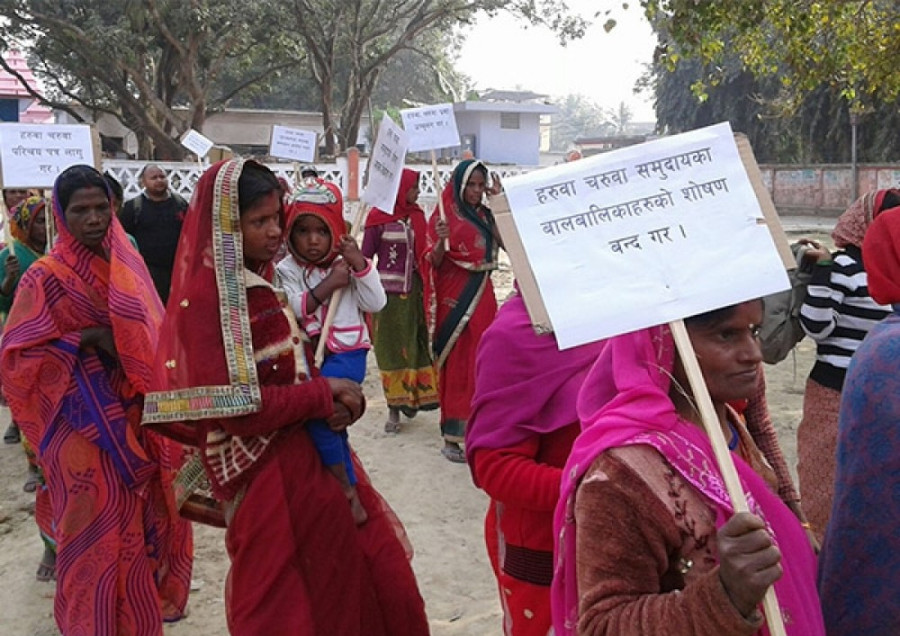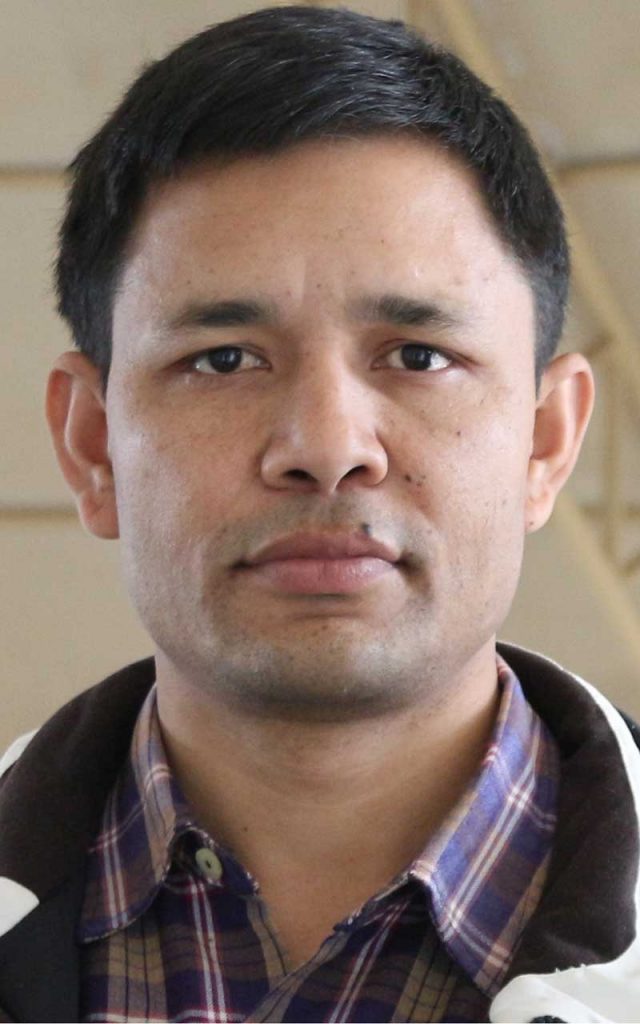Columns
Leave no one behind
The Harawa-Charawa system is possibly the last visible evidence of slavery in Nepal.
Jagat Deuja
The state has been ignoring the plight of Harawa-Charawa (meaning ploughmen and herders) for decades despite their loud cries of distress. This year too the government did not allocate a single penny for their rehabilitation in the 2023-24 budget, even though they were mentioned in its policy and programmes. The overall budget of the Ministry of Land Management, Cooperative and Poverty Alleviation has been increased this fiscal year, but there was nothing for these unfortunate people of the Tarai.
Harawa-Charawa is a kind of bonded labour in the agriculture sector which is prevalent in Madhesh province. The overwhelming majority of Harawa-Charawa belong to Dalit communities and landless families. They plough the fields and do other farm work besides serving as domestic help for the landlords to pay the interest on the loan they have taken from them. Their meagre wages don’t even cover the interest. As a consequence, they cannot get out of the debt trap and remain in bondage for generations.
Everyday experiences
Unsafe housing, scanty hygiene and sanitation, exploitation in different forms, and starvation and deprivation are some of the common everyday life experiences of all Harawa-Charawa families. The state’s claim of free and compulsory education for all has remained a myth for their children. Harawa-Charawa don't send their children to school because they have to work to support their families. Moreover, they can't afford the school uniforms, stationery and various extra charges. They lack basic facilities like electricity, hand pumps for drinking water and toilets. During our repeated field visits, we observed that only a few Harawa-Charawa households had electricity, and they suffer both in the hot months and the cold months. Since they have been historically marginalised from land resources, landlessness is at the root of these problems.
A study of Harawa-Charawa carried out in three municipalities of Dhanusha district by the Community Self-Reliance Centre in 2019 revealed that 90 percent of them have borrowed money to pay for medical treatment and food. The study also showed that 72 percent of them cannot switch to a better paying job primarily due to their debt.
While life has been hard as a result of government negligence, job opportunities in their villages are disappearing as machines take over. Growing mechanisation has limited their chances of finding work during the paddy and wheat harvesting seasons. A female member of a Harawa-Charawa family told me recently that the girhat (the landlord) only calls them to do transplanting work and has stopped calling them during the harvesting season. The impact of climate change has further aggravated their living situation as many of them live on river banks and such unsafe places. For some years, they have been facing floods in the monsoon and water scarcity in the winter.
The government of Nepal outlawed bonded labour in 2000 and enacted the Kamaiya Labour (Prohibition) Act 2001 to prevent and rehabilitate bonded labourers. But even after the promulgation of the new constitution in 2015, this exploitative system continues to exist.
The constitution prohibits slavery and forced labour in any form. As guaranteed under the social justice clause, every peasant has the right to have access to land for agricultural activities.
Article 40 (5) and (6) specifically requires the state to provide land as well as housing to landless Dalits. Linked to the stated fundamental rights, the "policies relating to social justice and inclusion” under Part 4 (Directive Principles, Policies and Obligations of the State) categorically directs the state “to identify the liberated bonded labourers, Kamalari, Harawa, Charawa, tillers, landless, squatters” and rehabilitate them by providing “housing, housing plots for residence and cultivable land or employment for their livelihood”. Despite all these constitutional provisions, the government has not fulfilled any of these obligations.
Moral question
In 2022, endorsing the recommendations of the Study Committee on Kamaiya, Kamhalari, Haliya, and Harawa-Charawa formed by the Ministry of Land Management, then prime minister Sher Bahadur Deuba instructed the authorities concerned to ensure that the Kamaiya Act 2001 was implemented. Subsequently, the ministry prepared a guideline for the “emancipation and rehabilitation of Harawa-Charawa” in 2022. But the government disregarded all these efforts by not creating a single programme or making any budget allocation to address these issues, which raises a moral question before the Ministry of Land Management. Repeating the same rhetoric and not doing anything meaningful for the last two decades clearly indicates that the government is not committed to resolving the issues of Harawa-Charawa.
The proclamation of liberation of Harawa-Charawa remains on paper only and even data collection of Harawa-Charawa families, a prerequisite for their rehabilitation, has not yet been initiated.
The Harawa-Charawa system is possibly the last visible evidence of slavery in Nepal. In April, the Harawa-Charawa Rights Forum organised a weeklong march demanding their rehabilitation, but the government is still irresponsive to the data collection process.
The delay in the rehabilitation of Harawa-Charawa is not acceptable. The government must allocate the necessary budget for enumerating Harawa-Charawa households and their rehabilitation by revising the annual budget. In addition, international organisations claiming to be working for the rights of Harawa-Charawa and landless people need to rethink their strategies and allocate resources for the same purpose. Sustainable Development Goals, despite its claim that no one is left behind, is mute about the most marginalised section of the country's population.
The government needs to uphold the constitutional principles and the commitments made at various junctures, and promptly undertake the necessary measures. Otherwise, it will be costly for the government and the country.




 18.12°C Kathmandu
18.12°C Kathmandu















